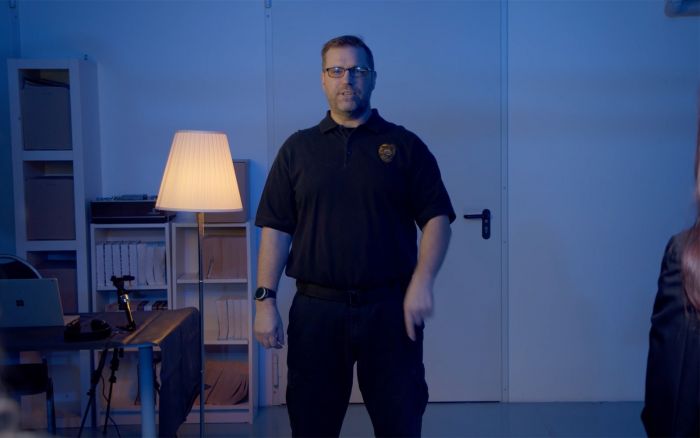2025: The World Enslaved by a Virus by Joshua Wesely, Simon Wesely (Review)

Thanks to the ever-present COVID-19 pandemic, the world as we know it has disappeared by the year 2025. A unified government now controls the world, communism is everywhere, meetings and travel are illegal, English is the only language allowed, and worst of all, Christianity has been banned. Roy and his sister Hannah long for the days when they could openly profess their faith, but now they’re forced to live off the grid, abandoned by everyone they know. Tired of living in fear, the plucky twenty-somethings decide that it’s time to strike back, and begin an underground movement to reclaim their country and their freedom.
I’m sure that for some Christians, the above scenario isn’t just plausible, but a virtual certainty. This was the sort of belief that I grew up with, that a one-world government would soon control all human activity and Christians would be forced underground, unable to practice their beliefs for fear of government-sanctioned execution. But here’s the twisted part: there was a part of me that secretly wanted all of that to happen. I wanted to feel important, even heroic, and what better way than covertly battling a worldwide regime for Jesus?

As such, I can’t really slag 2025: The World Enslaved by a Virus as much as you might think, or as much as others have. Make no mistake: 2025 is not a good movie. Setting aside the movie’s entire concept, it’s poorly made and filled with thinly drawn characters, awkward performances, stilted dialog, and incoherent editing. If you told me that Joshua and Simon Wesely shot 2025 in a single weekend with friends, significant others, and family members as their cast and crew, and just made everything up as they went along, that would not surprise me. At all.
It’s really best to think of 2025 less as an artistic attempt and more as a piece of simplistic propaganda preaching to the choir. And therein lies a few problems.
I have little doubt that 2025 was inspired in part by Germany’s lockdown attempts to curb COVID, which have been far more widespread concerning religious activities than anything here in the States or even other European countries. (To its credit, 2025 never questions the reality of COVID itself. I would be considerably less sanguine towards the movie if it promoted anti-vaxxer nonsense on top of any other conspiracy theories.) Given that the Wesely family is involved church ministry themselves, such lockdowns were probably personally frustrating on top of everything else pandemic-related.
But just like here in the States, an undue focus on perceived and potential persecution overlooks and minimizes the very real persecution occurring outside of rich, affluent countries like Germany and United States.
What would believers in Afghanistan living in fear of the Taliban, or North Korean Christians trying to survive their country’s brutal regime, think of Western Christians complaining about “infringements” on personal liberty (e.g., wearing a mask, having to forgo public singing) as if they’re proof that believers are one step closer to being hauled off in the middle of the night by jackbooted government thugs? What would happen if Christians in affluent Western nations stopped being so aggrieved about their own “persecution,” and instead, spent that time praying and advocating for their brothers and sisters who are literally facing imprisonment, torture, and death as opposed to discomfort.

The movie’s propagandistic approach also has an artistic and aesthetic impact. With propaganda, there’s no room for mystery or questions, which means that 2025 is purely didactic. (Indeed, everything about this movie, right down to its chaste love story, feels designed for youth group screenings.) Sure, we see Roy and Hannah express dismay and fear, but never doubt. That would be unforgivable. But this narrow focus means that 2025 misses out on opportunities to be something more.
2025’s most interesting character is Lucinda, the daughter of the police inspector intent on bringing down Roy and Hannah’s operation; she’s the only character who expresses any sort of internal conflict or struggle. On the one hand, she’s cold and ruthless (so we’re told), while on the other hand, she hates her father’s brutality and only follows along because she doesn’t want to be rejected. Which makes her character’s final moments onscreen sort of tragic. Or rather, they would be tragic if the movie was interested in going down that path and wrestling with a flawed character — which it isn’t.
Similarly, the movie’s most interesting moment occurs when Hannah leads Holly — a cryptocurrency hacker who helps them evade government detection (no, really) — in the Sinner’s Prayer. Not because of the prayer itself, but rather, because they pray in their native German rather than English. (Not surprisingly, their performances instantly feel more natural as a result.) There’s a potentially powerful idea there, that it’s a blessing to be able to worship in one’s native tongue, and how something’s lost when you’re deprived of that. But not surprisingly, the moment passes, Holly’s saved, and it’s never mentioned again.

Being propaganda, 2025 doesn’t trust its audience; it can’t risk that some viewer might not understand what’s going on in any given moment. Otherwise, they might miss the all-important message.
A particularly humorous example of this occurs when the police chief, who has been tracking down Christians using the government’s advanced surveillance, asks one of his techs to explain precisely how that very same surveillance works. Earlier in the movie, Roy and Hannah are saved from the police by Hunter, a former American soldier who left his post because he wouldn’t swear allegiance to the one-world government — and we know he’s an American soldier because he’s wearing both an American flag neck gaiter and a hat emblazoned with, I kid you not, “Special Forces.”
Having said all of that, there is a certain charm to the ineptitude on display here à la Ed Wood that makes it difficult for me to think too harshly of 2025: The World Enslaved by a Virus or its creators, my concerns with their persecution complex notwithstanding. A lot of the movie’s aforementioned flaws are ultimately the product of youth and naïveté, especially their simplistic approach to storytelling, and of their passion and ambition outstripping their skill and means (hence the reliance on stock footage and their own Instagram videos).
That may sound like a backhanded compliment, which is not my intention. But there are some movies that leave you desperately praying that those responsible never pick up a camera ever again. I don’t feel that way after seeing 2025. Rather, I hope the Weselys become better filmmakers, especially better filmmakers of faith. I hope they learn to trust their audiences, embrace a little mystery and ambiguity, avoid easy propaganda and simplistic narratives — and maybe just shoot in German from now on.
